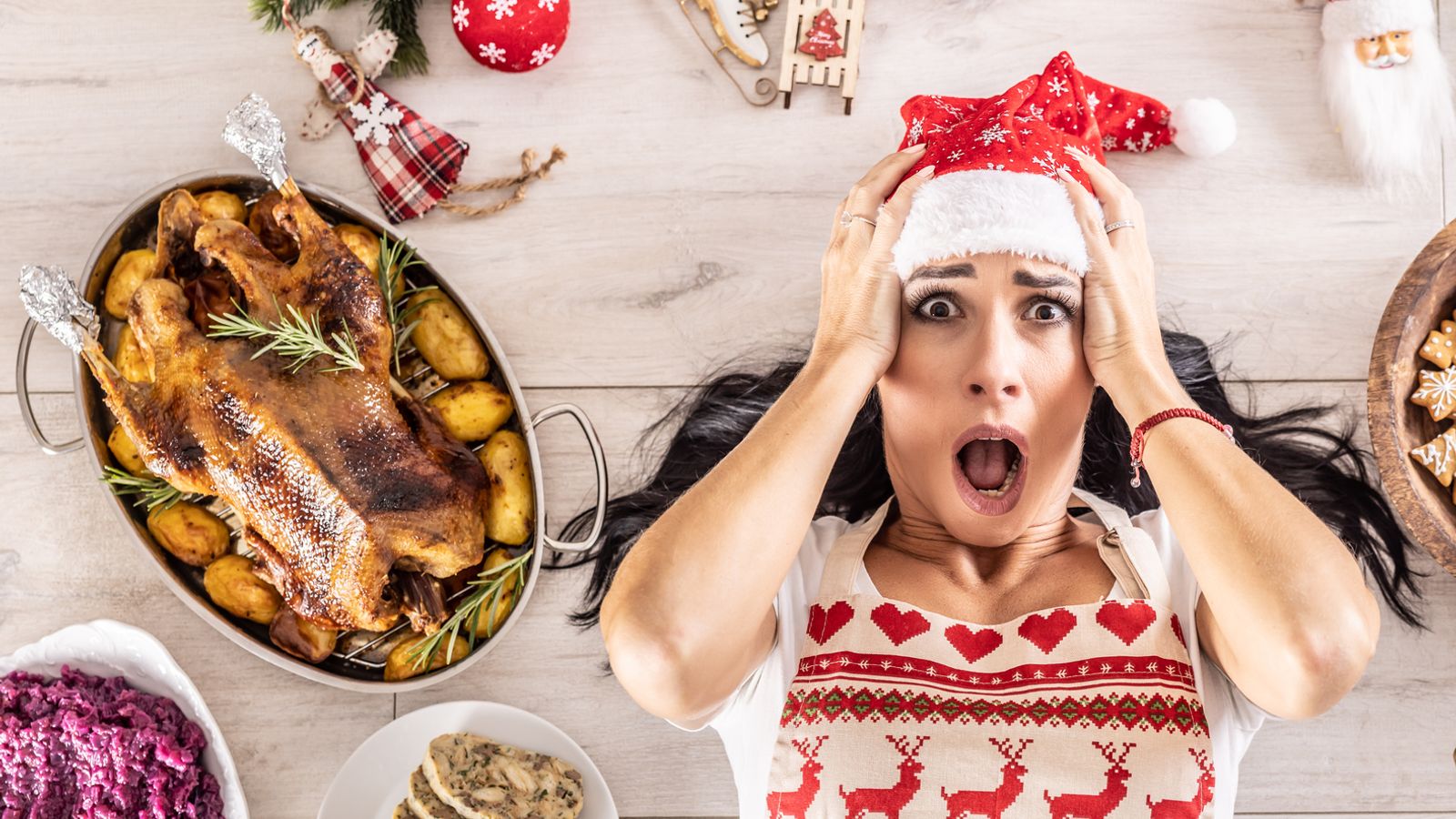Nothing spoils Christmas quite like food poisoning – although wasting all of your leftover Turkey comes in at a close second.
That’s why the Food Standards Agency (FSA) has shared some top tips to help keep your Christmas safe and minimise food waste over the festive period.
From safe Turkey storage to correct defrosting and cooking methods – plus a look at how to avoid the dreaded freezer burn – here’s everything you need to know.
Keep it on the low
You should ideally store raw meat and fish covered on the bottom shelf of your fridge to avoid cross-contamination or spillages affecting ready-to-eat food and vegetables, according to the FSA.
They recommend keeping Turkey and ready-to-eat food apart even while completing your initial Christmas shop, so make sure you bring enough bags.
Your fridge needs to be set at 5C or below to keep your Turkey top-notch, they add.
Christmas tree from 1920s Woolworths sells for ‘astonishing’ price
‘World’s most humble Christmas tree’ to go up for auction
London’s Columbia Road Christmas carols cancelled after going viral on TikTok and becoming ‘dangerously’ overcrowded
Leave plenty of defrosting time
No one wants to be tucking into their Christmas turkeys on Boxing Day.
So bear in mind that a whole turkey can take up to five days to fully defrost – and that you shouldn’t take shortcuts by thawing it out of the fridge.
Always check the packaging for instructions, as some turkeys that are bought frozen can also be cooked from frozen.
But as a general guide, the FSA says you should allow around 10-12 hours of defrosting time per kg.
A typical large turkey weighing 6-7kg could take as long as four days to fully defrost in the fridge, they add.
It’s absolutely vital that the turkey is thawed throughout, as it may cook unevenly if not, potentially leaving harmful bacteria in your meal.
Preparing and cooking your turkey
It’s important to wash your hands thoroughly with warm water and soap whenever handling raw meat. Also, be sure to wash any utensils and surfaces it has come into contact with.
A common misconception is that your turkey isn’t clean until you’ve washed it. But the FSA says it should absolutely not be washed before cooking, as this spreads germs onto your hands, clothes, utensils, and worktops.
Please use Chrome browser for a more accessible video player
If you’re cooking stuffing, be sure to do so in a separate roasting tin, rather than inside the turkey, as a stuffed turkey will take longer to cook and may not cook thoroughly.
Read more:
Christmas dinner favourites at risk after washout harvest
Carols cancelled after becoming ‘dangerously’ overcrowded
If there are no cooking instructions on the packaging, here’s what the FSA says you should do: In an oven preheated to 180ºC (350ºF or Gas Mark 4):
• Allow 45 minutes per kg plus 20 minutes for a turkey that weighs under 4.5kg
• 40 minutes per kg for a turkey that weighs between 4.5kg and 6.5kg
• 35 minutes per kg for a turkey that weighs over 6.5kg
How you’ll know if the turkey’s done
You need to check that it’s steaming hot and cooked all the way through.
If you do not have a meat thermometer or temperature probe, cut into the thickest part of the meat, check that none of the meat is pink and that any juices run clear.
Avoiding freezer burn
Whether you’re cooking for many people or few, you’d rather have too much food than too little.
It’s therefore incredibly common to end up with huge portions of leftover Christmas cooking.
Fear not: you can freeze almost anything, including your cooked turkey, potatoes, veg and more.
Be decisive if you want to get things frozen, as it should be done within one or two hours of the food reaching room temperature.
It will be safe in the freezer for a long time, but the FSA warns of freezer burn.
Freezer burn is when foods in the freezer are exposed to cold, dry air, which causes them to dehydrate and form ice crystals.
It’s not typically dangerous, but it does reduce the quality of the food once you’ve defrosted it.
Be the first to get Breaking News
Install the Sky News app for free
You can avoid freezer burn by eating the meat within 2-3 months. You can leave baked goods, fruit and veg for between 3-4 months before the burn kicks in.
When you’re ready for a second Christmas lunch, be sure to defrost food slowly in the fridge or in a microwave on the defrost setting, rather than at room temperature.
Once it’s defrosted, the FSA says to eat it within 24 hours. Be sure to have it all, as you can’t freeze it again afterwards.





